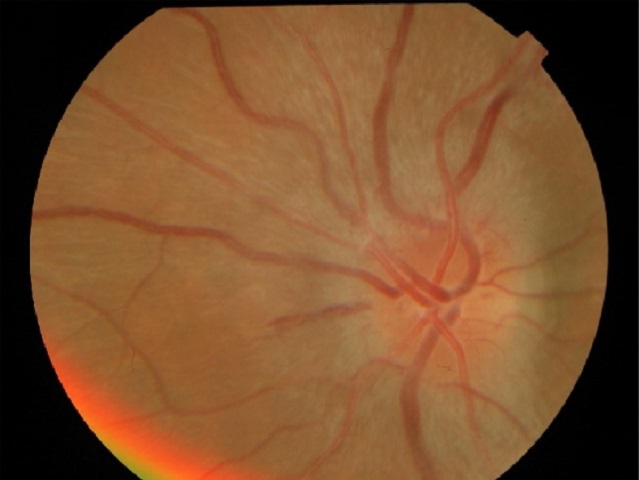7 Signs You May Have Multiple sclerosis -- Symptoms, Causes, Effects, Treatment and Prevention
Multiple sclerosis (MS) is a chronic autoimmune disease that affects the central nervous system (CNS). It occurs when the immune system mistakenly attacks the protective covering of nerve fibers, called myelin, leading to communication problems between the brain and the rest of the body. This damage can cause a wide range of symptoms and complications.
Symptoms of Multiple Sclerosis
The symptoms of multiple sclerosis can vary widely from person to person and may include:
- Fatigue: Feeling extremely tired and lacking energy.
- Muscle weakness and stiffness: Difficulty with coordination and movement, muscle weakness, and problems with balance.
- Numbness or tingling: Sensations of numbness, tingling, or prickling in various body parts.
- Problems with coordination and balance: Difficulties with walking, clumsiness, and problems with balance.
- Visual disturbances: Blurred or double vision, eye pain, or partial loss of vision.
- Cognitive changes: Problems with memory, attention, concentration, and problem-solving.
- Depression and anxiety: Emotional changes, including mood swings, depression, and anxiety.
Diagnosis of Multiple Sclerosis
Diagnosing multiple sclerosis can be challenging as there is no single definitive test. Healthcare professionals typically use a combination of medical history, neurological examination, and various diagnostic tests, including:
- Magnetic Resonance Imaging (MRI): Imaging technique to detect areas of damage or inflammation in the brain and spinal cord.
- Lumbar Puncture (Spinal Tap): Collecting cerebrospinal fluid to check for abnormalities associated with MS.
- Evoked Potentials: Measuring electrical signals in response to stimuli to evaluate nerve function.
Causes of Multiple Sclerosis
The exact cause of multiple sclerosis is unknown, but it is believed to involve a combination of genetic and environmental factors. Potential causes and risk factors include:
- Autoimmune response: The immune system mistakenly attacks the myelin in the CNS.
- Genetic factors: Certain genes may predispose individuals to develop multiple sclerosis.
- Environmental factors: Exposure to certain infections, such as the Epstein-Barr virus, and low levels of vitamin D may play a role.
Effects of Multiple Sclerosis
Multiple sclerosis can have a significant impact on daily life and overall well-being. The effects can include:
- Physical disability: Progressive loss of mobility, muscle weakness, and coordination difficulties.
- Cognitive impairment: Problems with memory, attention, and information processing.
- Emotional changes: Depression, anxiety, and mood swings.
- Fatigue: Severe fatigue that can interfere with daily activities.
- Pain: Chronic pain, including muscle and joint pain.
- Bladder and bowel problems: Incontinence, frequent urination, and constipation.
- Sexual dysfunction: Reduced sexual desire and function.
Treatment of Multiple Sclerosis
While there is currently no cure for multiple sclerosis, various treatment approaches can help manage symptoms, slow disease progression, and improve quality of life. Treatment options may include:
- Disease-modifying therapies: Medications to reduce the frequency and severity of relapses, slow disease progression, and manage symptoms.
- Symptom management: Medications, physical therapy, occupational therapy, and lifestyle modifications to manage specific symptoms and improve daily functioning.
- Rehabilitation: Physical therapy, occupational therapy, and speech therapy to improve mobility, coordination, and communication.
- Supportive care: Psychological support, counseling, and support groups to cope with the emotional and social challenges of living with multiple sclerosis.
Prevention of Multiple Sclerosis
As the exact cause of multiple sclerosis is unknown, there are no specific preventive measures. However, some lifestyle factors may help reduce the risk or delay the onset of the disease:
- Vitamin D: Adequate vitamin D levels may be associated with a reduced risk of developing multiple sclerosis. Consider maintaining sufficient vitamin D levels through sunlight exposure and/or supplementation.
- Healthy lifestyle: Adopting a healthy lifestyle, including regular exercise, a balanced diet, and avoiding smoking, may contribute to overall well-being.
Note: It is important to consult with a healthcare professional for accurate diagnosis, personalized treatment, and further information about multiple sclerosis.
References:
National Multiple Sclerosis Society. (n.d.). Multiple Sclerosis. Retrieved from https://www.nationalmssociety.org/What-is-MS
Mayo Clinic. (2021). Multiple Sclerosis. Retrieved from https://www.mayoclinic.org/diseases-conditions/multiple-sclerosis/symptoms-causes/syc-20350269
MedlinePlus. (2022). Multiple Sclerosis. Retrieved from https://medlineplus.gov/multiplesclerosis.html


















